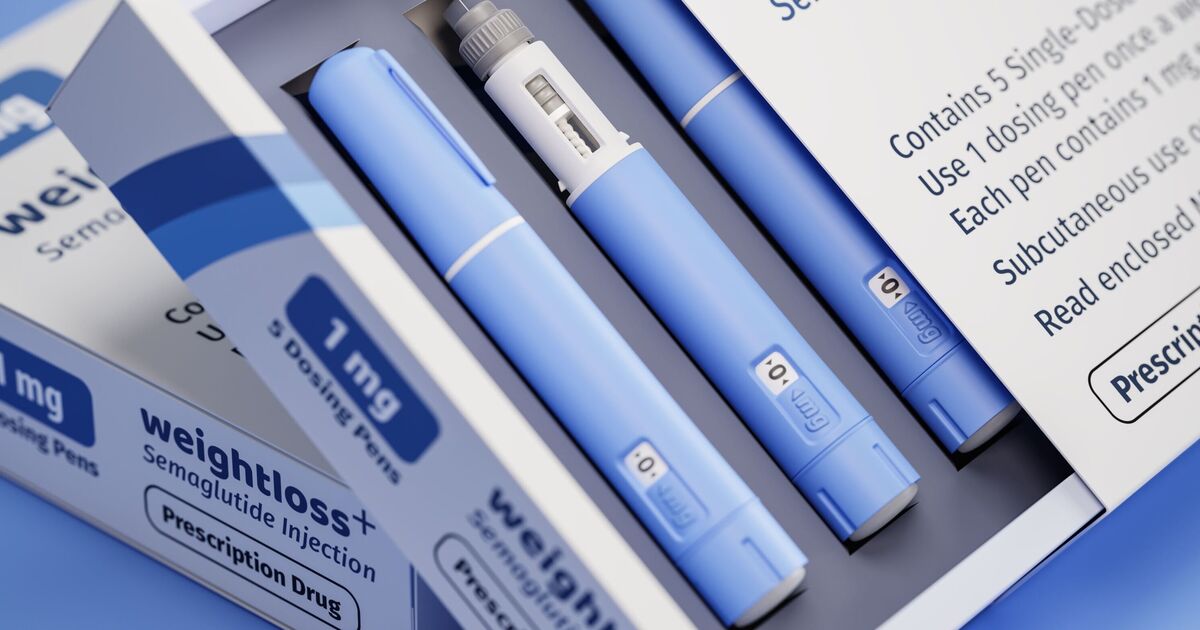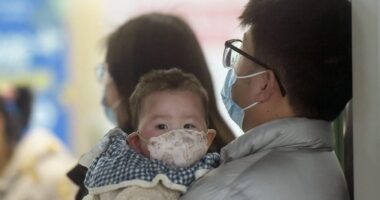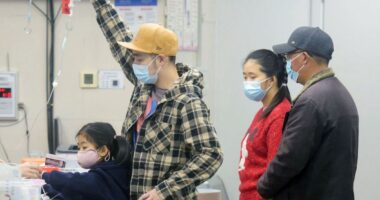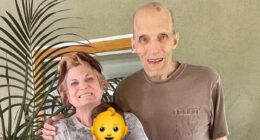Weight-loss jabs could soon be offered to children as young as six after a study found they safely helped obese youngsters cut their body mass index (BMI).
A US trial recruited 82 children aged between six and 12 with an average BMI of 31 – just over the obesity threshold of 30.
Two thirds were given a daily injection of a drug called liraglutide while the rest were given a placebo. Both groups received diet and exercise counselling.
After just over a year, children receiving the treatment experienced an average reduction in BMI of 7.4% compared with those on the dummy dose. Their blood pressure and blood sugar control also improved.
Almost half (46.2%) of children on the treatment managed to cut their BMI by at least 5%, compared with 8.7% in the placebo group.
READ MORE: Urgent health warning issued over fake and dangerous weight loss jabs sold in UK
The benefits were assessed using BMI because the children were still growing. Average body weight increased by 1.6 % among children taking liraglutide and 10% for those in the placebo group.
Weight loss jabs have been hailed as revolutionary for the treatment of obesity and related conditions such as type 2 diabetes in adults.
Study leader Professor Claudia Fox, of the University of Minnesota Medical School, said: “The results of this study offer considerable promise to children living with obesity.
“To date, children have had virtually no options for treating obesity. They have been told to ‘try harder’ with diet and exercise.
“Now with the possibility of a medication that addresses the underlying physiology of obesity, there is hope that children living with obesity can live healthier, more productive lives.”
The findings were published in the New England Journal of Medicine and presented at the at the annual meeting of the European Association for the Study of Diabetes Obesity in Madrid.
Professor Stephen O’Rahilly, an expert in clinical biochemistry and medicine at the University of Cambridge, said liraglutide was less effective than more recent weight-loss drugs but was likely chosen for the study due to its strong safety record.
He added: ”While efforts to prevent childhood obesity through altering the ‘obesogenic environment’ remain a high priority, safe and effective treatments that can help obese children, particularly those where it is severe, are needed immediately.
“It seems likely that we see more trials in this age group, and that they will involve the use of increasingly more effective weight-loss drugs.”
Dr Simon Cork, senior lecturer in physiology at Anglia Ruskin University, said developing anti-obesity medication for children was more complicated due to the risks of stunting growth.
He added: “Nevertheless, we know that people who experience obesity as a child are much more likely to be obese in adulthood, and experience the associated negative health outcomes that come with it.
“Therefore, the evidence that liraglutide is both safe and effective in children is positive.
“Further studies over longer time periods will need to be undertaken to ensure that appetite suppression in these children does not have unforeseen negative consequences later in their development.”










